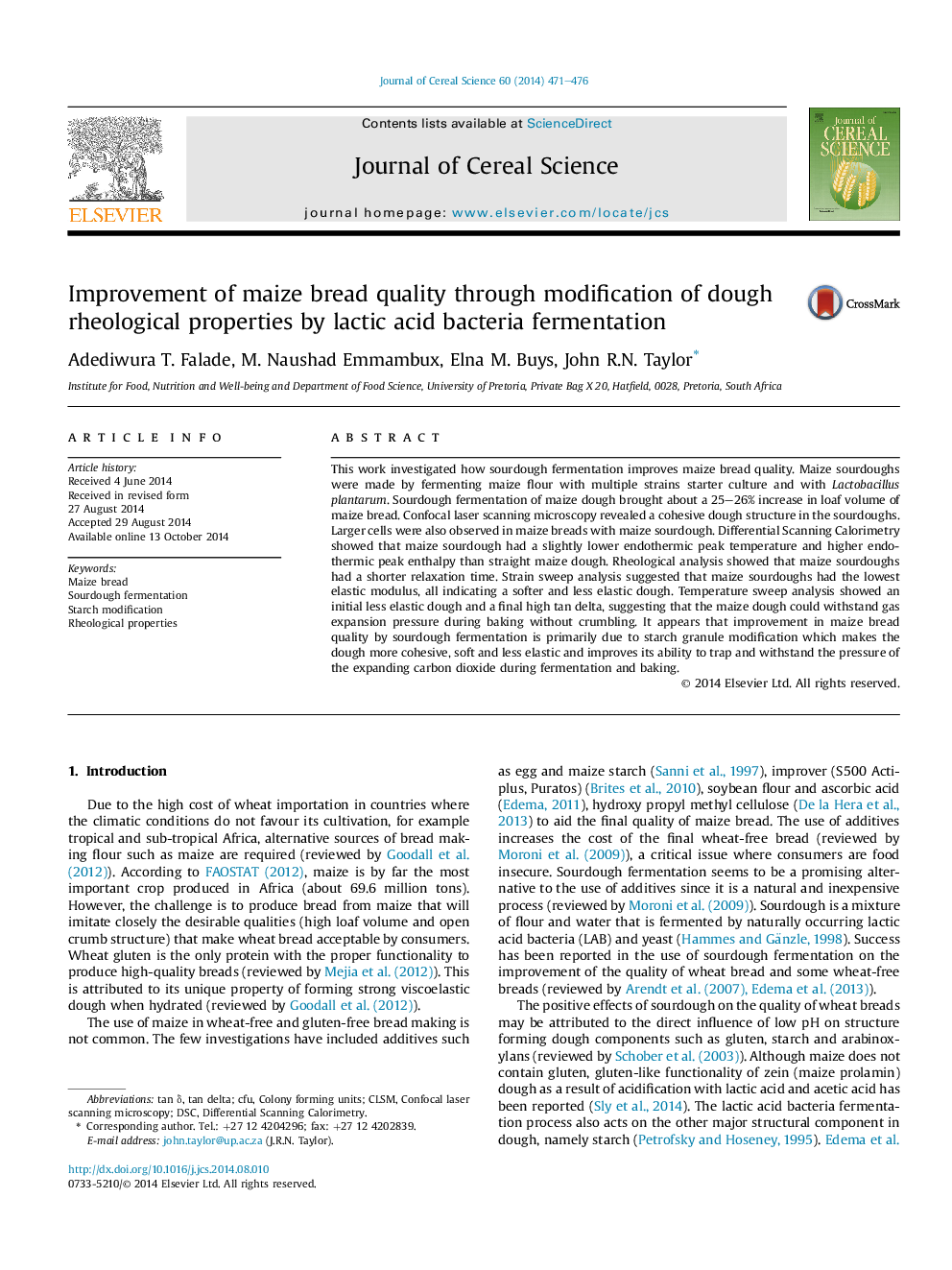| کد مقاله | کد نشریه | سال انتشار | مقاله انگلیسی | نسخه تمام متن |
|---|---|---|---|---|
| 4515746 | 1624902 | 2014 | 6 صفحه PDF | دانلود رایگان |
• Sourdough fermentation brought about starch granule modification.
• Starch granule modification made maize dough softer and less elastic.
• Modified dough rheological properties improved maize bread volume and texture.
This work investigated how sourdough fermentation improves maize bread quality. Maize sourdoughs were made by fermenting maize flour with multiple strains starter culture and with Lactobacillus plantarum. Sourdough fermentation of maize dough brought about a 25–26% increase in loaf volume of maize bread. Confocal laser scanning microscopy revealed a cohesive dough structure in the sourdoughs. Larger cells were also observed in maize breads with maize sourdough. Differential Scanning Calorimetry showed that maize sourdough had a slightly lower endothermic peak temperature and higher endothermic peak enthalpy than straight maize dough. Rheological analysis showed that maize sourdoughs had a shorter relaxation time. Strain sweep analysis suggested that maize sourdoughs had the lowest elastic modulus, all indicating a softer and less elastic dough. Temperature sweep analysis showed an initial less elastic dough and a final high tan delta, suggesting that the maize dough could withstand gas expansion pressure during baking without crumbling. It appears that improvement in maize bread quality by sourdough fermentation is primarily due to starch granule modification which makes the dough more cohesive, soft and less elastic and improves its ability to trap and withstand the pressure of the expanding carbon dioxide during fermentation and baking.
Journal: Journal of Cereal Science - Volume 60, Issue 3, November 2014, Pages 471–476
